The science of numbers ought to be preferred as an acquisition before all others, because of its necessity and because of the great secrets and other mysteries which there are in the properties of numbers. All sciences partake of it, and it has need of none.
BOETHIUSMan is so constituted that he then only excels other things when he knows himself.
More Boethius Quotes
-





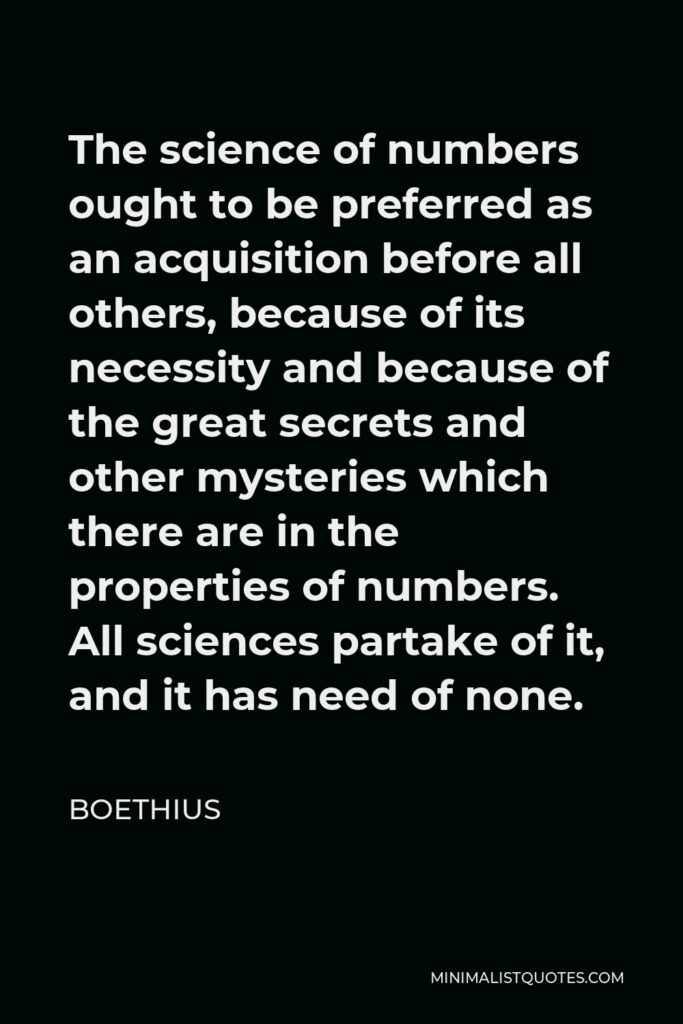

-







A man content to go to heaven alone will never go to heaven.
BOETHIUS -





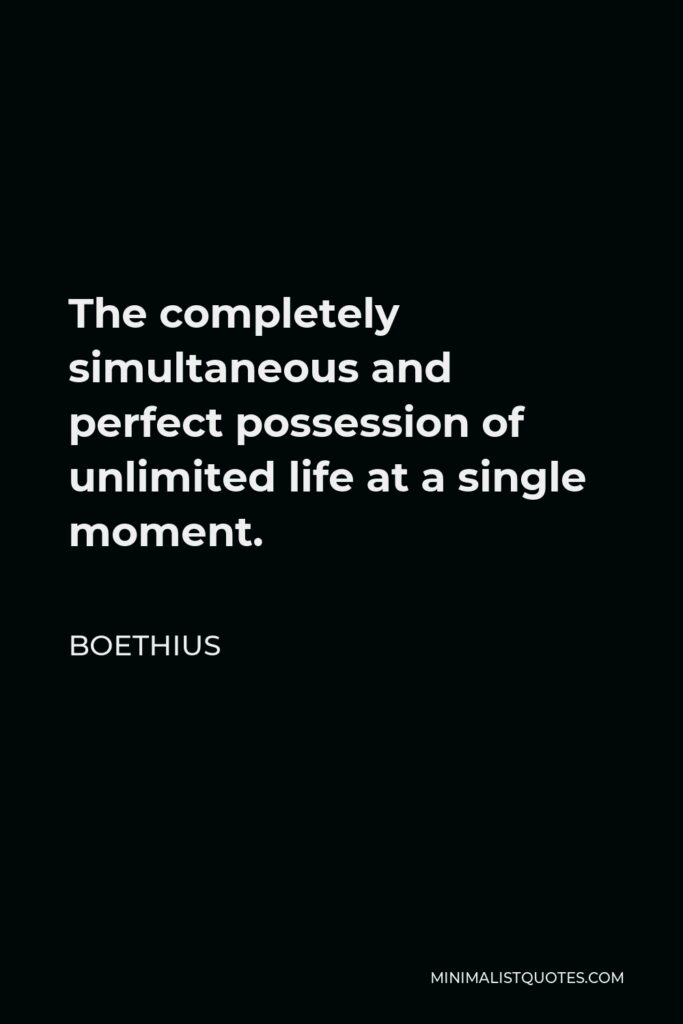

The completely simultaneous and perfect possession of unlimited life at a single moment.
BOETHIUS -







Whose souls, albeit in a cloudy memory, yet seek back their good, but, like drunk men, know not the road home.
BOETHIUS -





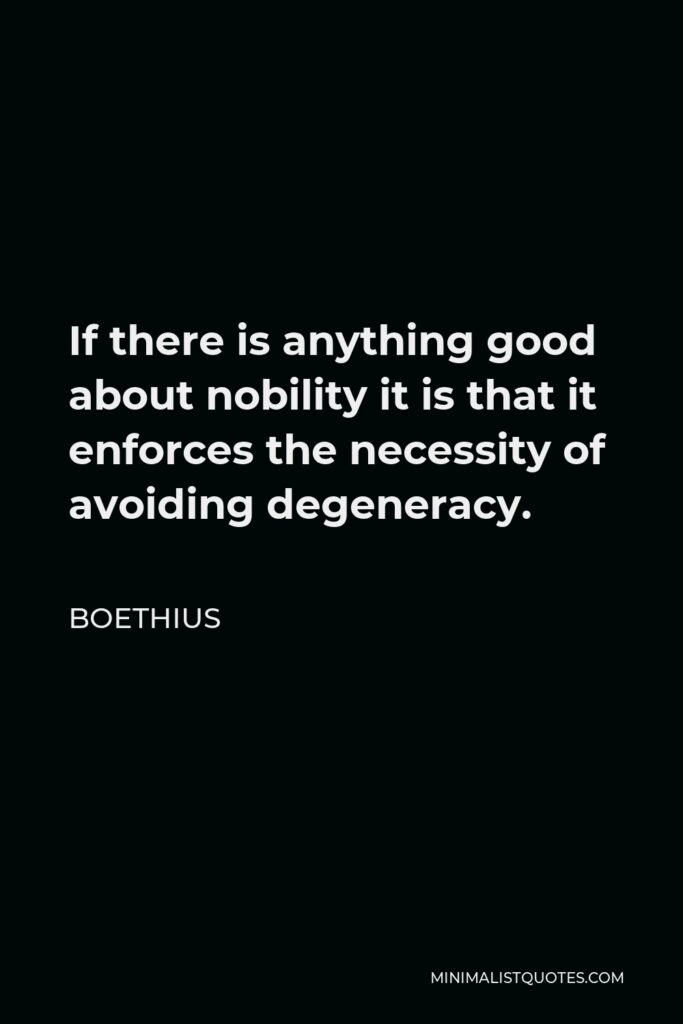

If there is anything good about nobility it is that it enforces the necessity of avoiding degeneracy.
BOETHIUS -







Every man must be content with that glory which he may have at home.
BOETHIUS -







Music is part of us, and either ennobles or degrades our behavior.
BOETHIUS -





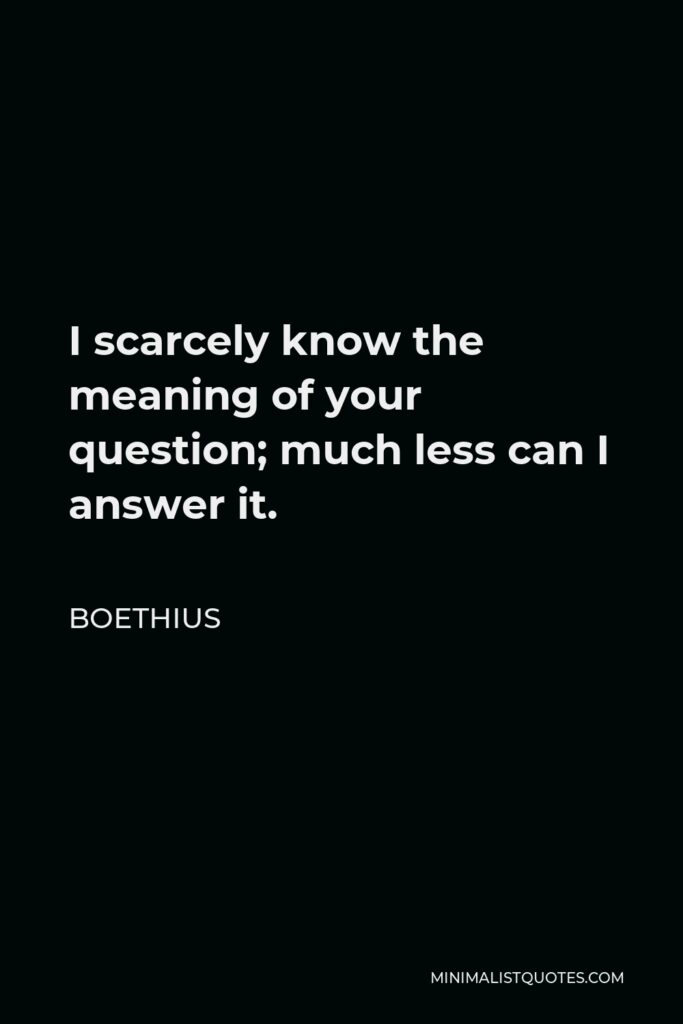

I scarcely know the meaning of your question; much less can I answer it.
BOETHIUS -





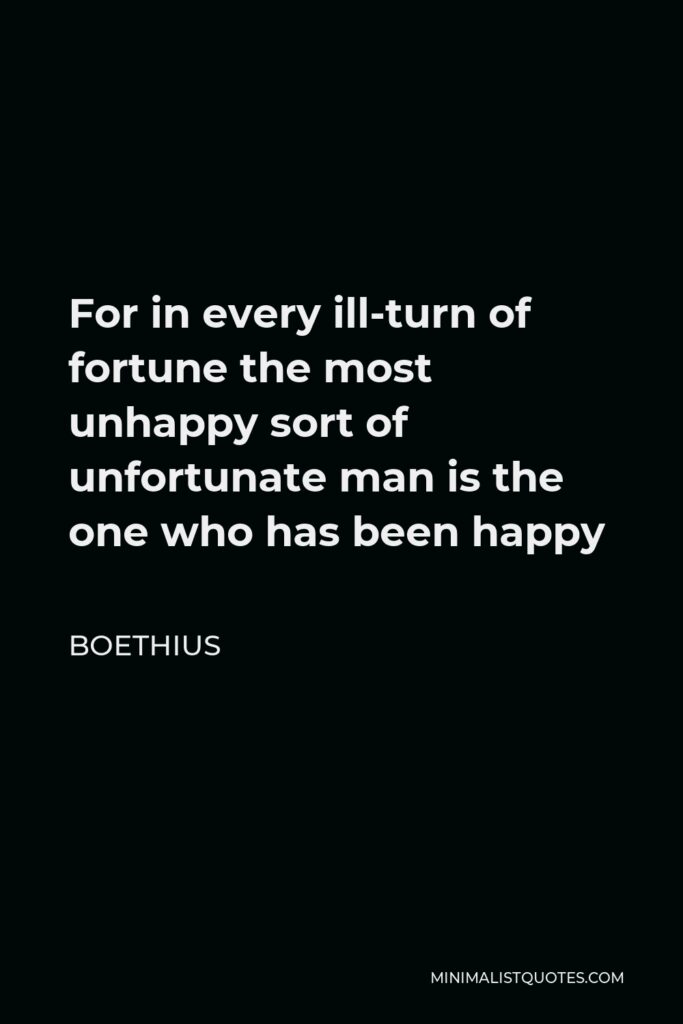

For in every ill-turn of fortune the most unhappy sort of unfortunate man is the one who has been happy
BOETHIUS -





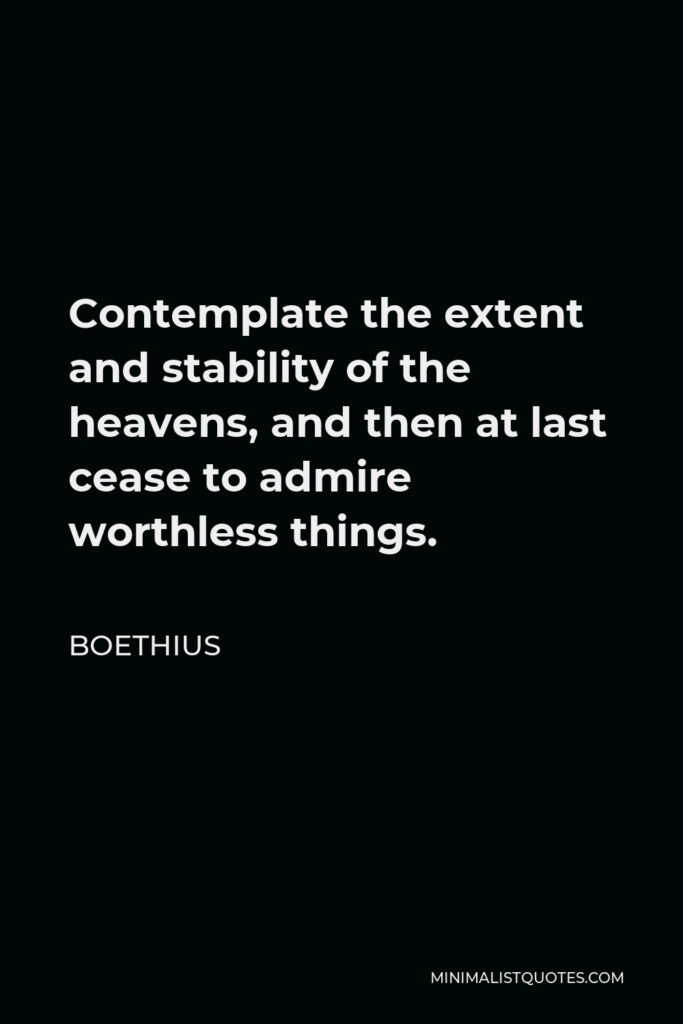

Contemplate the extent and stability of the heavens, and then at last cease to admire worthless things.
BOETHIUS -





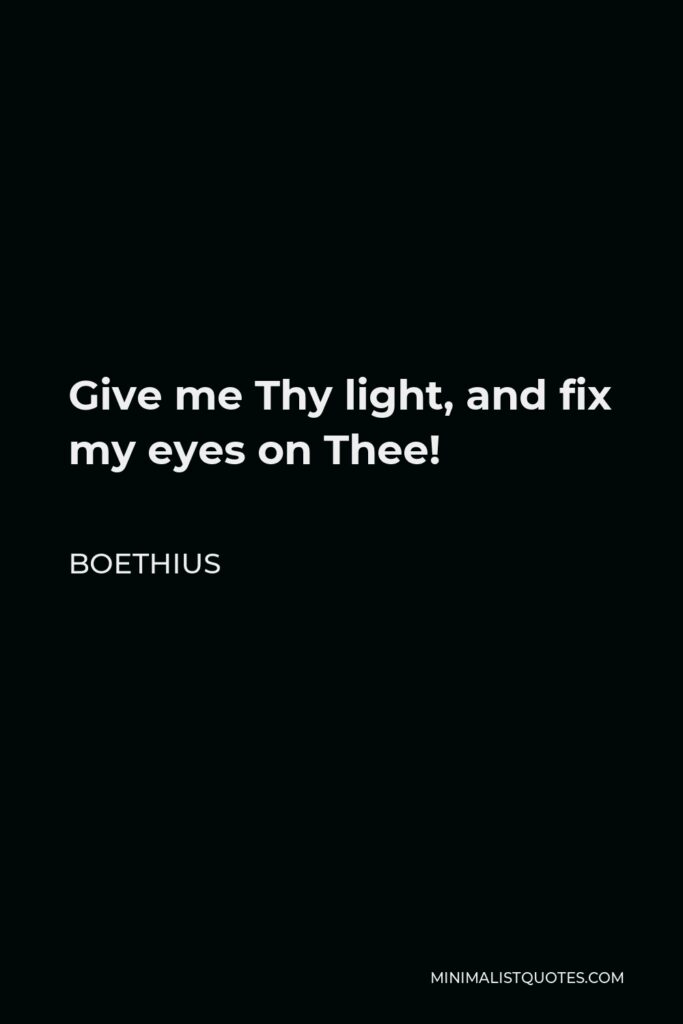

Give me Thy light, and fix my eyes on Thee!
BOETHIUS -





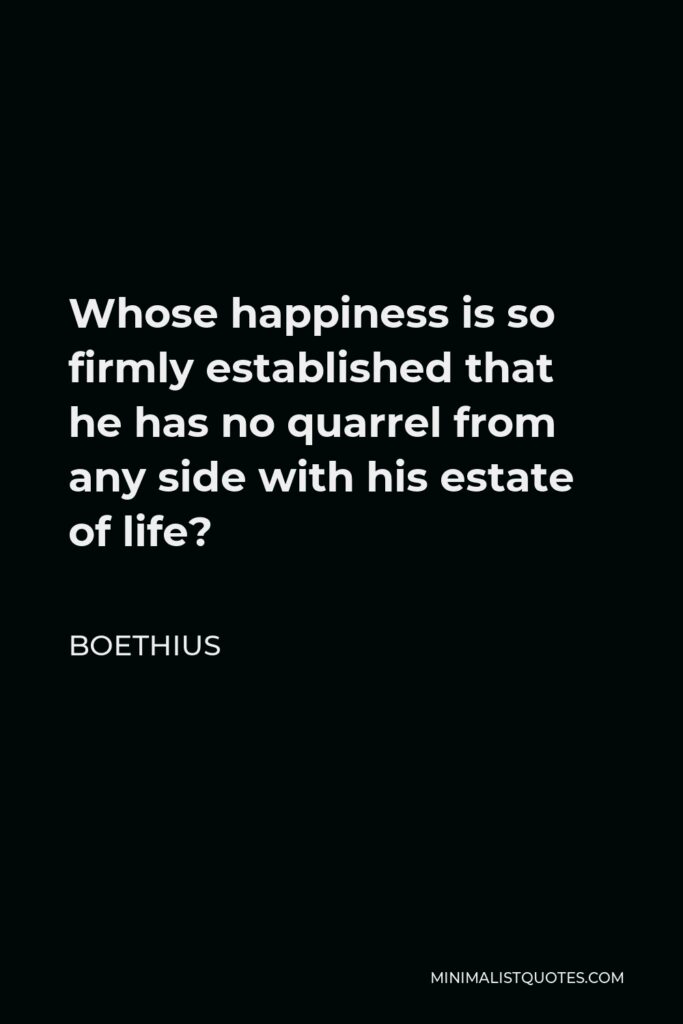

Whose happiness is so firmly established that he has no quarrel from any side with his estate of life?
BOETHIUS -







And no renown can render you well-known: For if you think that fame can lengthen life By mortal famousness immortalized, The day will come that takes your fame as well, And there a second death for you awaits.
BOETHIUS -





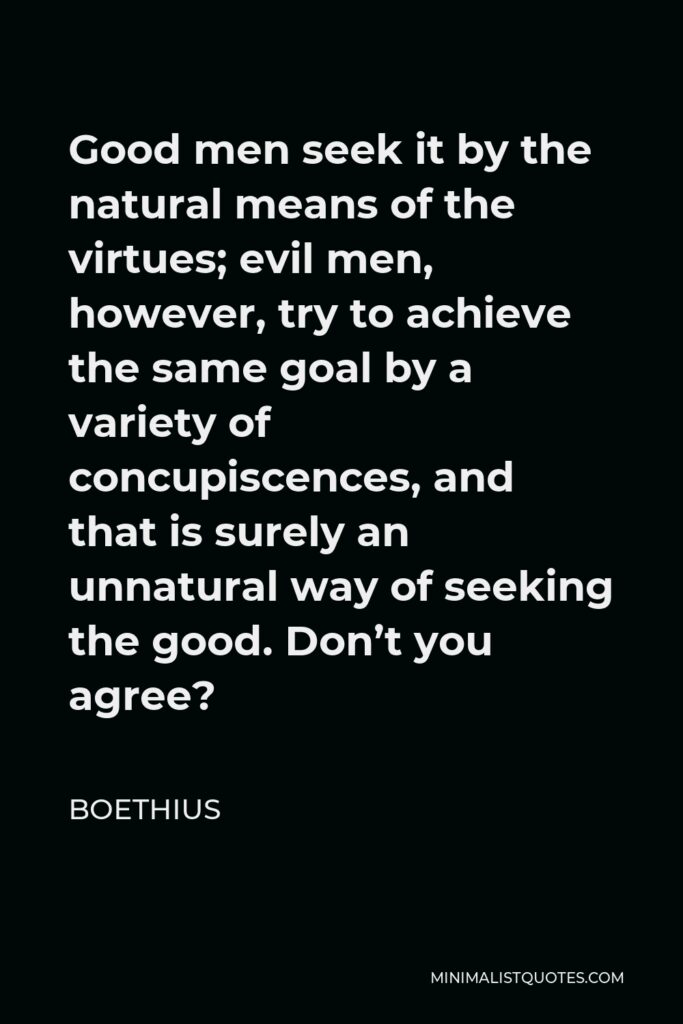

Good men seek it by the natural means of the virtues; evil men, however, try to achieve the same goal by a variety of concupiscences, and that is surely an unnatural way of seeking the good. Don’t you agree?
BOETHIUS -





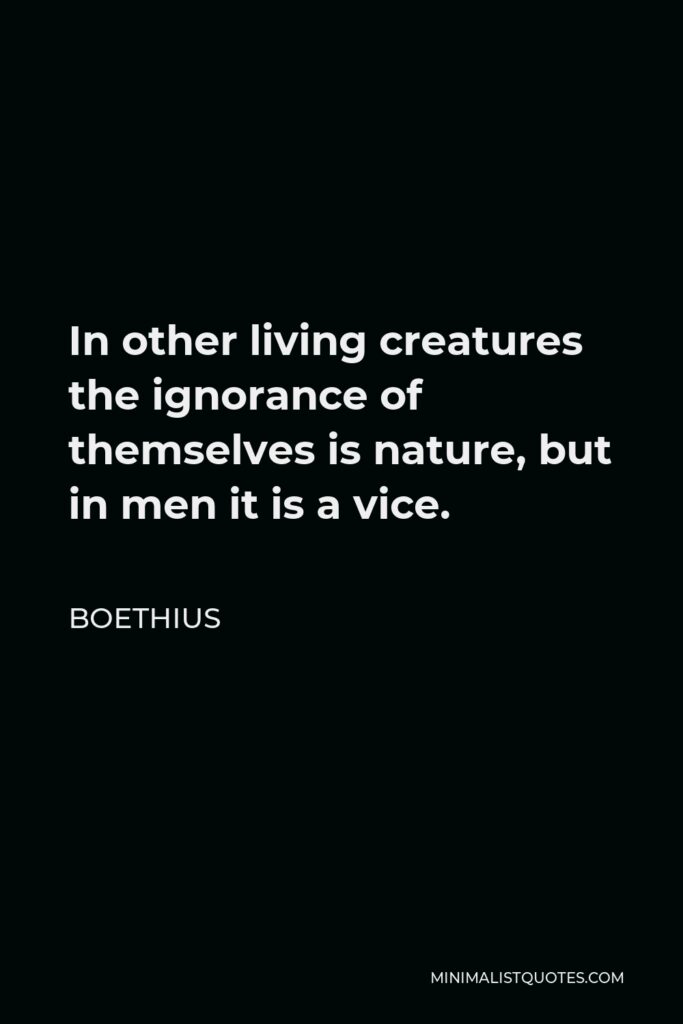

In other living creatures the ignorance of themselves is nature, but in men it is a vice.
BOETHIUS -





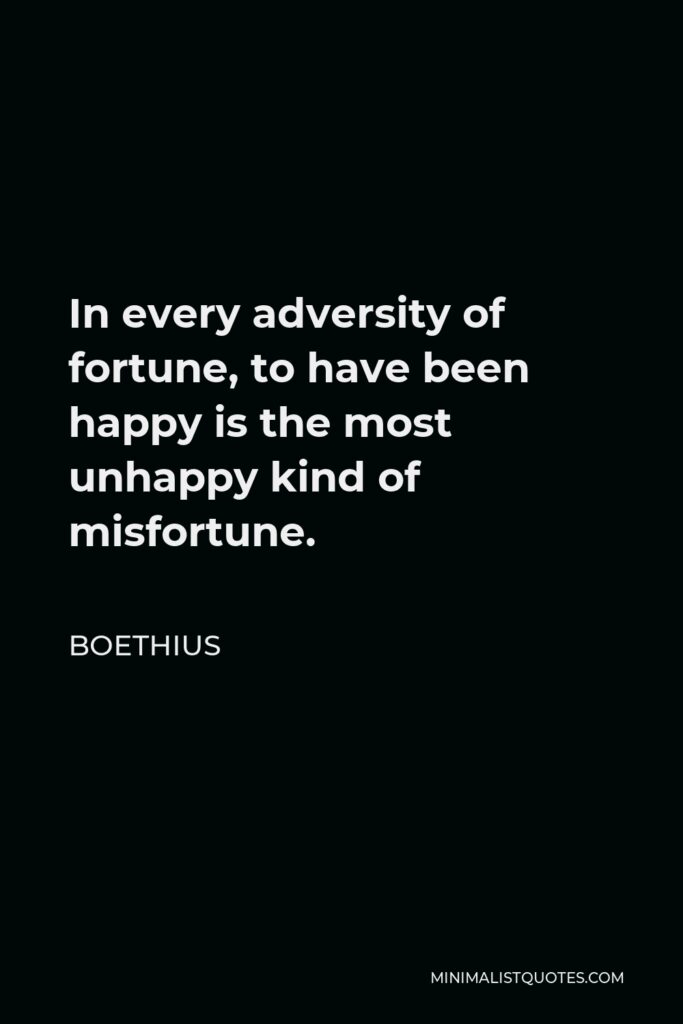

In every adversity of fortune, to have been happy is the most unhappy kind of misfortune.
BOETHIUS








